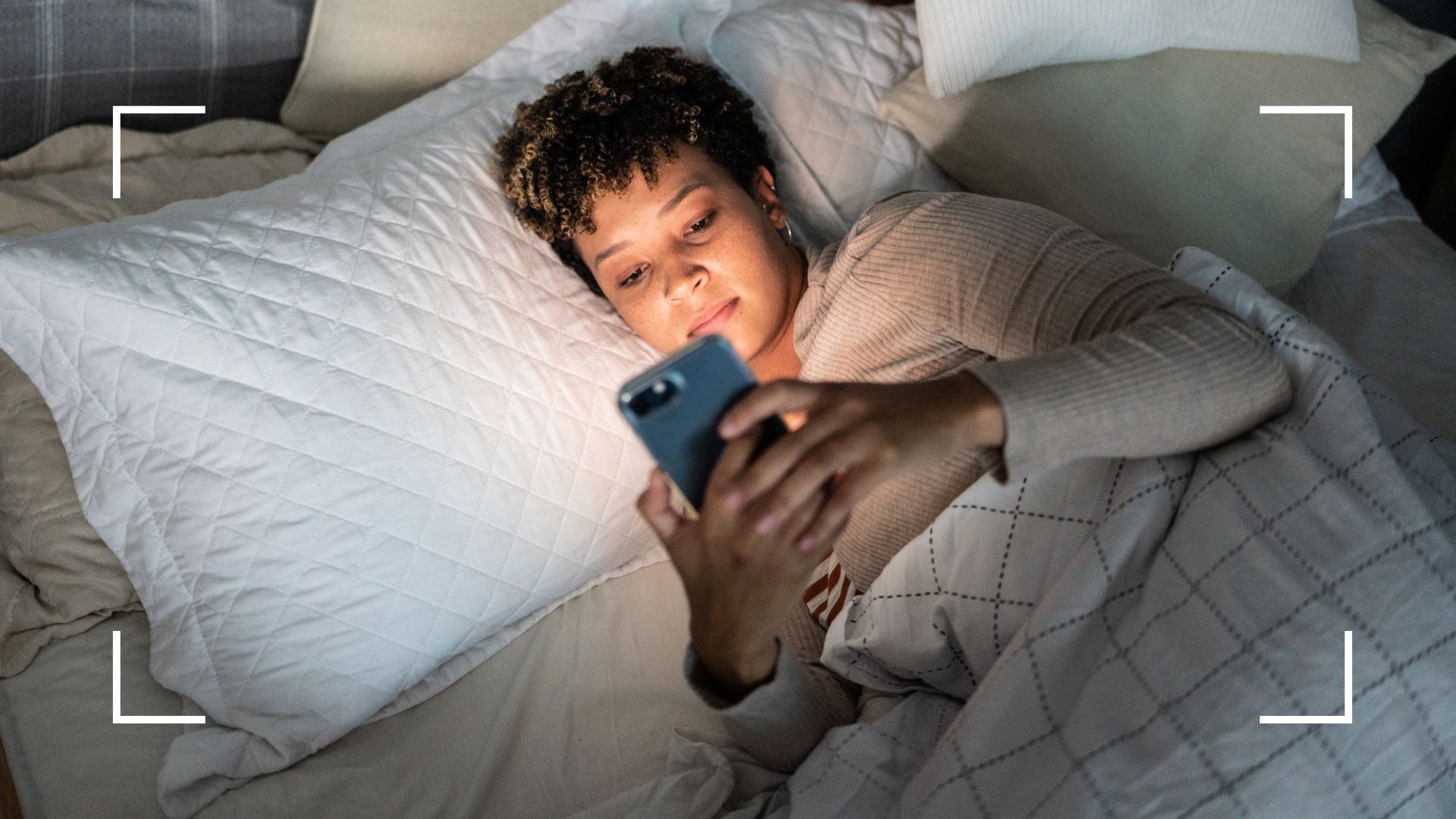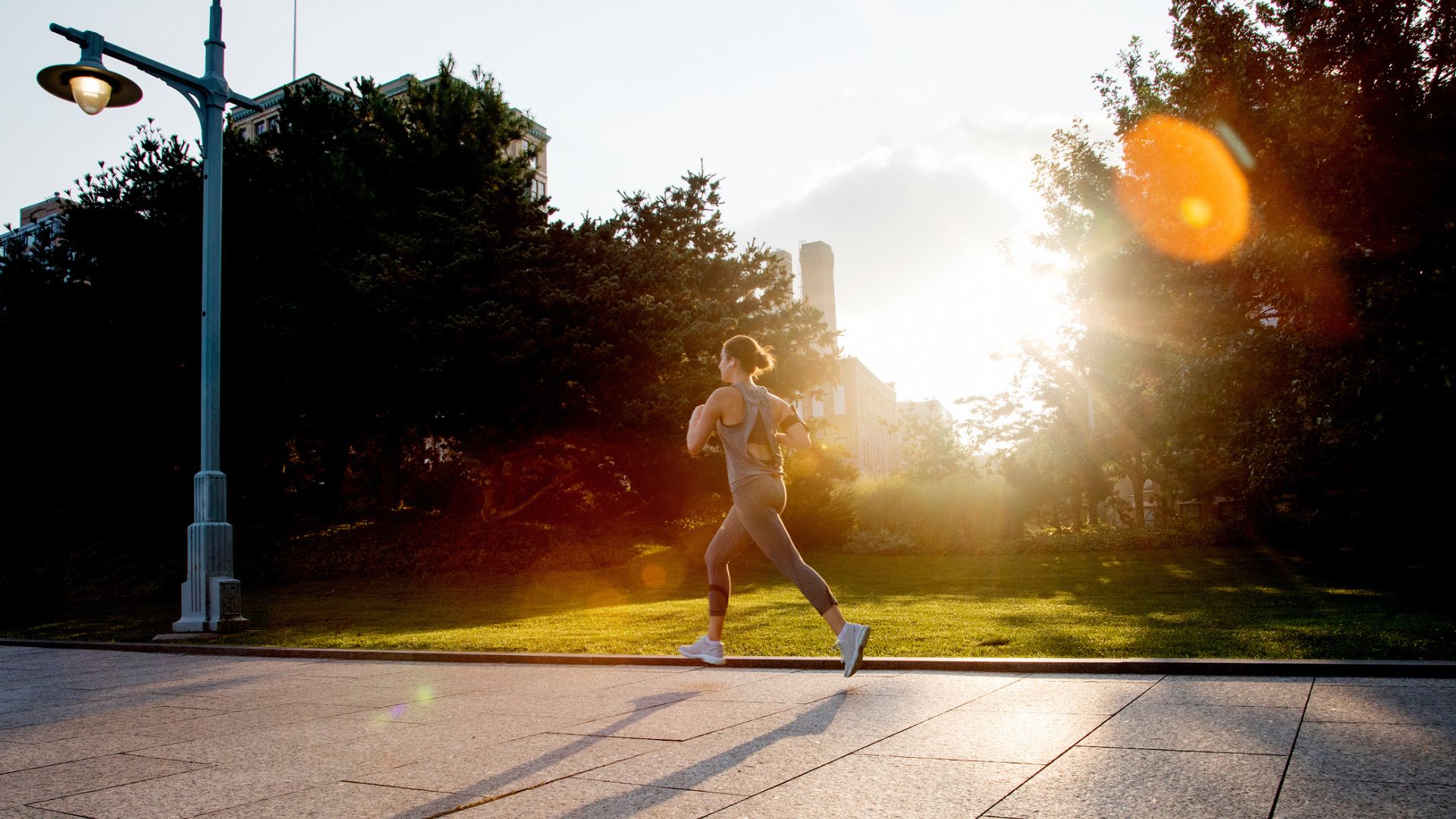What is the best time to sleep and wake up every day? Two specialists explain
Here, two experts reveal the best time to sleep and wake up for a healthy sleep schedule


What's the best time to sleep and wake up? As the seasons are set to change from winter to spring once again, we're all expecting some disturbance to our regular sleep schedule.
Getting your sleep schedule ready for the switch means starting from step one: making sure you’re going to bed and waking up at the right times to get enough hours in. How much sleep we need is a number that varies across our life, but the current guidelines from the Sleep Foundation recommend that anyone aged between 18 and 64 get seven to nine hours of sleep every night. “The guidelines also recognize that some people need less than this, as few as six hours per night, and others need as many as 10 hours sleep,” explains Dr Greg Potter, a sleep specialist who focused his Ph.D. research on melatonin and circadian rhythms.
So, how much sleep you need is entirely personal but it's easy to work out the best time to sleep and wake up for your personal needs based on these figures. Whether you're looking to learn how to fall asleep fast or want to establish a longer-term routine, this is what two medical sleep specialists have to say.
What is the best time to sleep and wake up?
Best time to sleep
As every adult needs between seven and nine hours of sleep, the best way to work out what time to fall asleep is to decide what time you’re going to wake up in the morning and then count back up to nine hours. For example, if you need to wake up at 7 am then you should start getting ready for bed no later than midnight.
When figuring out the best time to sleep and wake up, it's important to listen to your body. Last summer, for example, many of us were struggling to sleep in the heat so we felt more tired earlier in the evening. Instead of fighting against this, Dr Potter, who is also the chief science officer at Resilient Nutrition, says that when this happens again, we should embrace our new early bedtime and use tools like brown noise for sleep to improve our routine instead of fighting the urge. "Being practical, your goal should generally be to align your sleep opportunity with when your body craves sleep," he says. "You shouldn't be forcing yourself to go to bed if you aren't sleepy, and you shouldn't be doing things that cause a delay until well after you start feeling a strong urge to sleep."
Best time to wake up
The best time to wake up in the morning is seven to nine hours after you’ve gone to bed. For example, if you went to bed at 11 pm then you should wake up between 6 am (earliest) to 8 am (latest). This will ensure you’re getting enough sleep to recover from the day and allow the body’s processes to work.
Whatever time you choose as the best time to wake up, it should be the same throughout the week if you want to learn how to sleep better. Research from the University of Hiroshima found that those who regularly woke themselves up at a scheduled time had more consistent sleep patterns and better quality sleep than those who didn't regularly wake themselves up at a predetermined time.
Sign up to our free daily email for the latest royal and entertainment news, interesting opinion, expert advice on styling and beauty trends, and no-nonsense guides to the health and wellness questions you want answered.

Does going to sleep before midnight make a difference?
Yes, there is some evidence to suggest falling asleep before midnight is better for your overall health. “People who nod off between 10 pm and 11 pm have less risk of cardiovascular disease and stroke than those who go to bed at other times,” explains Sammy Margo, chartered physiotherapist specializing in sleep.
Researchers in affiliation with the University of Oxford looked at 88,000 participants between 43 and 74 years old over six years and found that just over 3000 of them developed heart and circulatory disease. After analyzing answers to various lifestyle questions and readings from a wrist accelerometer, they discovered disease occurrences were most common among those with sleep times past midnight. They were least common among people who fell asleep within this golden hour of 10 pm to 10:59 pm.
However, these findings are minimal compared to evidence on the health benefits of just getting enough sleep - whatever the hour. “The most important thing is that you get the correct amount of sleep,” confirms Margo, who is also the sleep expert for Dreams, the UK’s number one specialist bed retailer.
Dr Potter agrees. “Insufficient sleep is the worst outcome as it affects most if not all aspects of human biology," he says. "Even short-term, sleep loss impairs brain function, worsens mood, focus, memory, ability to learn, and increases impulsivity. Increased sleepiness from a lack of sleep also increases the risk of traffic accidents and accidents at work. While chronic insufficient sleep, like insomnia, increases the risk of many diseases.”
When compared to people who regularly get a good amount of sleep, those with conditions that prevent them from sleeping are more likely to develop diseases like obesity, diabetes, and cardiovascular disease, as a study by Jichi Medical University School of Medicine outlines.
However, just as everyone needs a different amount of sleep, everyone reacts differently to a lack of sleep. “Some people are more resistant to some of the repercussions of sleep loss than others,” says Dr Potter.

Why do some people need more sleep than others?
Some people need more sleep than others because they have more active lifestyles, explains Margo. "If you play sport, need caffeine to get through the day, feel tired during the day, have a manual job or need to remain alert for your job, have higher stress levels, or suffer from a sleep problem, you'll likely need closer to eight hours sleep." But there are three other factors that can mean the best time to sleep and wake up is different for someone else, Dr Potter explains:
- Age: “In general, sleep needs decrease across the lifespan,” he explains. “While some newborns need as many as 19 hours of sleep per day, some people who are 65 or older might only need five hours.”
- Genetics: “There is a rare phenomenon called familial natural short sleep. This is where adults need just four to six and a half hours of sleep per night to feel their best, and this trait runs in families,” Dr Potter says.
- Lifestyle factors: “A sedentary person who begins a smart exercise program, for example, is likely to need more sleep."
- The light-dark cycle: “People tend to sleep longer during the long nights of winter than the short nights of summer,” he says.

Grace Walsh is woman&home's Health Channel Editor, working across the areas of fitness, nutrition, sleep, mental health, relationships, and sex. She is also a qualified fitness instructor. In 2025, she will be taking on her third marathon in Brighton, completing her first ultra marathon, and qualifying as a certified personal trainer and nutrition coach.
A digital journalist with over seven years experience as a writer and editor for UK publications, Grace has covered (almost) everything in the world of health and wellbeing with bylines in Cosmopolitan, Red, The i Paper, GoodtoKnow, and more.